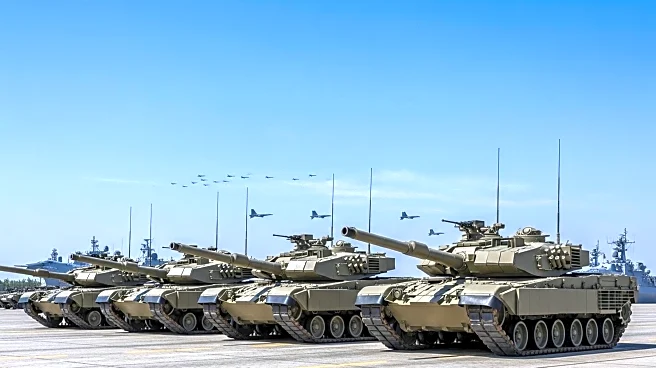What is the story about?
What's Happening?
China held a highly choreographed military parade in Beijing to mark the 80th anniversary of the defeat of imperial Japan and the end of World War II. The event showcased China's military strength and its expanding influence, with thousands of soldiers marching through Tiananmen Square. Chinese President Xi Jinping was joined by Russian President Vladimir Putin and North Korean leader Kim Jong-un, highlighting a strategic alignment against Western nations. The parade featured advanced military technology, including stealth drones and nuclear missiles.
Why It's Important?
The parade is a significant demonstration of China's growing geopolitical influence and its challenge to the U.S.-led world order. By aligning with Russia and North Korea, China is signaling its intent to form strategic partnerships that counter Western dominance. This event may impact international relations, particularly in the Asia-Pacific region, where military tensions are already high. China's emphasis on military strength and alliances raises concerns about potential shifts in global power dynamics.
What's Next?
China's demonstration of military prowess may lead to increased tensions with Western nations, particularly the United States. The gathering of leaders from countries opposed to U.S. dominance suggests potential shifts in alliances and geopolitical strategies. Observers will watch for further diplomatic engagements and military developments as China continues to position itself as a key player on the global stage.
Beyond the Headlines
The parade reflects deeper geopolitical shifts, with China positioning itself as a counterbalance to Western influence. The event also highlights the cultural and historical significance of World War II in shaping national identity and political narratives. China's emphasis on military strength raises ethical questions about the balance between national security and global peace.















